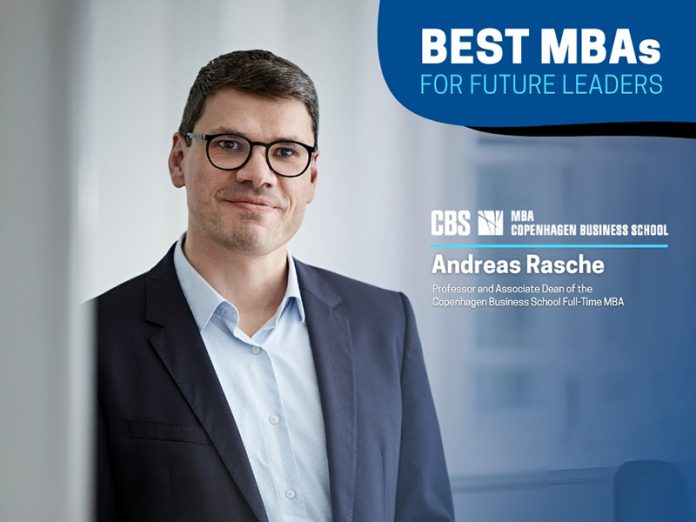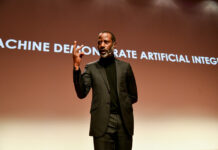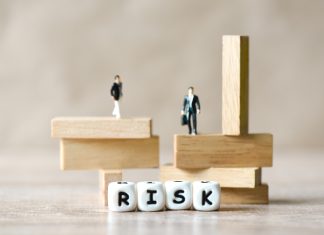Interview with Andreas Rasche of the Copenhagen Business School
It is quite rare for a professional education programme to feature small classes, in which, for example, students and teachers have improved opportunities to establish strong working relationships. Copenhagen Business School‘s MBA programme places relatively small but cosmopolitan cohorts of students in a highly conducive and collaborative Nordic setting.
It’s great to have you with us today, Mr Rasche. First off, we believe congratulations are in order for Copenhagen Business School’s (CBS) ranking 13th in Bloomberg’s top-ranked MBA programmes in Europe, and being in the Top 100 Global MBA programmes in the Financial Times 2025 Rankings. What do you believe contributed to these recognitions?
AR: First of all, our students! We are a small MBA programme and we have a more direct relationship with the students. I think this matters, and it helps to sustain relationships also after they graduate. And then, of course, our faculty. CBS is one of Europe’s leading business schools with a wide range of excellent faculty that know how to best engage with MBA students. So, I would say it is the mix between being a small programme and being embedded into an excellent larger school.
The global mindset is a critical aspect of your MBA. With students from diverse nationalities, how does the programme foster an international perspective?
AR: On average we have 20 nationalities in a cohort of around 50 students. This provides a student experience where the international dimension is built into the programme almost by default. Of course, we also ask students to activate this rich international source of knowledge in class, and it is always fascinating to see how different perspectives come together in case discussions. But it is also the students themselves. They utilize the international character of the cohort also outside of the classroom, for instance through activities like an international food fair. In times where we see some pushback against globalization in world politics, it is very reassuring to see globalization still being alive in our cohort of MBAs.
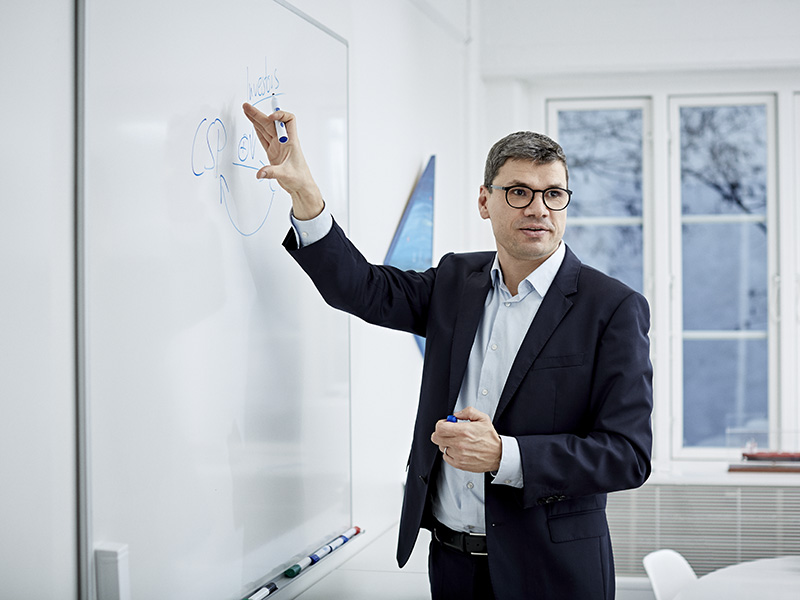
Leadership development is another major element of the programme. Could you elaborate on the “Leadership Discovery Process” and how it prepares students for leadership roles in a global business environment?
AR: This is a process which runs through the entire year. We did not want just a leadership course somewhere in the curriculum, as we believe that this isolates such fundamental discussions too much. The Leadership Discovery Process, or “LDP” as we call it, engages students throughout the year on different topics related to leadership, including a focus on “leading oneself,” because it is difficult to lead others if you lack knowledge about your own capabilities and challenges. The LDP also has a mentoring programme on the side, and usually students appreciate this a lot, as it gives a more private space to also bring in their own context. Finally, the highlight is usually a simulator where the students are asked to apply some of the lessons learned in a context that is outside of the classroom.
Since you are based in Denmark, the “Nordic Nine” capabilities framework also plays a key role. Can you explain how these capabilities shape the learning experience for MBA students and how they are applied in real-world business settings?
AR: The Nordic Nine is CBS’s way to have a consistent framework for capabilities that we expect all graduates to have. This includes things like being able to have fundamental business knowledge but still being able to apply this knowledge in a broad and changing context; or to be competitive but also compassionate and able to reflect on ethical dilemmas. All courses at CBS contribute in different ways to equipping students with these nine capabilities. You can think of it as a platform based on which faculty can discuss how to design and develop a programme.
Denmark is famously a world leader in sustainability, even among other European countries. How does the programme integrate sustainability across its curriculum and what makes its approach unique?
AR: We have one larger sustainability course in our core curriculum. Actually, we were one of the first schools to really include this into the core curriculum many years ago, because we believe that sustainability should be more than just an elective on the side. This course gives students the “101” on sustainability. We then also have a so-called “Concentration” that students can choose in order to further specialize on sustainability content. This Concentration includes, for instance, deep dives on sustainable finance, responsible supply chain management, and also corporate governance. A number of other courses in the core curriculum also pick up sustainability discussions (e.g., as case studies), so that the topic is also integrated. What makes all of this unique? I think it is the country and city in which we are placed. We can teach these topics in an authentic way. We can bring in guest speakers from world-leading companies, and we also do field trips to visit some of these companies as part of the core course.
CBS ranked 57th for ESG and net zero teaching and 83rd for carbon footprint globally. Where do you see business education evolving in these areas and what role does CBS play in shaping the next generation of responsible business leaders?
AR: Climate change and net zero strategies are part of the teaching, of course. I think this topic is a kind of “given” these days when it comes to business education. You cannot enter business life without at least a basic understanding of scope emissions and possible net zero pathways. We do a lot in this area, and we try to keep students engaged on these debates.
Collaboration with other business schools is a priority at CBS. Can you share more about your work with institutions across Europe and the USA, particularly through initiatives like PRME?
AR: Indeed, CBS has a lot of partner schools and collaborates a lot with schools from all over the world. As our MBA is only one year long and since around 90 per cent of students are non-Danes, we do not offer a formalized exchange programme. But students can opt for a short visit to St. Gallen to experience a course there. We also collaborate with other schools, for instance on case competitions. PRME is a broader platform that is utilized a lot by CBS as a whole, and it helps us to continuously exchange knowledge on best practices in the area of sustainability education.
The CBS MBA programme can be completed in just one year. How do you successfully condense the learning experience while maintaining the depth and quality of education typically offered in a two-year programme?
AR: I think it is a lot of about organizing the curriculum in a different way. We have organized the content in blocks, so that courses are less “spread out” throughout an entire term but rather taught in a week or two. We have made positive experiences with this model, as it allows students and teachers to really dive deep into the content and to also build up better relationships. Of course, a one-year MBA means fewer free days for the students, but I think the educational quality is comparable to longer programmes.
We have made positive experiences with this model, as it allows students and teachers to really dive deep into the content and to also build up better relationships.
Actually, several schools have moved away from the two-year model, as they realize that it is not what students want, because, for instance, the opportunity costs of a two-year education are much higher. In a world where knowledge needs to be updated through life-long learning, I think a one-year MBA is the much more realistic option, if you pair it with knowledge updates in your specific area of expertise throughout your career.
It’s also been described as a “boutique MBA.” What advantages do smaller class sizes offer compared to larger MBA programmes?
AR: You learn better when you really know your classmates. If you are part of a cohort of, say, 200 or 300 students, you will only interact with a cluster of students that you define yourself. Our small class size is a deliberate choice because we believe it helps both students and teachers. They can build up much better and lasting relations, and they also need to really think as a cohort when addressing challenges.
For international candidates, particularly from the U.S., what would you say are the biggest draws of studying at CBS? How does the programme compare to American MBAs?
AR: The biggest draw is probably the fact that the Copenhagen MBA is embedded into the broader Nordic way of living that you see every day here in Copenhagen. The Nordic countries really differ from the U.S. and other countries in a lot of ways, for instance in terms of the emphasis on collaboration, equality, and trust between different societal actors. This shapes your way of living and business culture, and it also shapes the way we work with students. Many of our students stay in Denmark after their studies precisely because they value these values.
I do not think that there is “the American MBA”, so it is difficult to make comparisons. But, overall, I would say that we are a programme that puts more emphasis on the interplay between business value and business values. As indicated, this is a natural consequence of our Nordic heritage, and the strong global position of Denmark’s companies in the world economy shows that this approach supports long-term competitiveness.
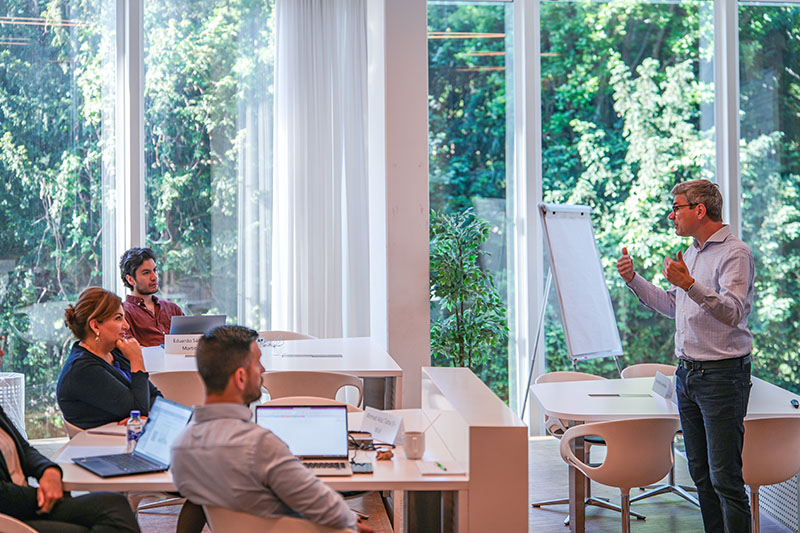
What final message would you like to share with prospective MBA candidates about why they should choose CBS for their business education?
AR: My final advice would be to not just compare programmes themselves when deciding about MBA studies. In the end, it is the environment around the programme that makes the difference, in terms of both the school where you study and the society where you live and maybe later work. I think we strike the right balance between having an excellent programme that is embedded into a leading business school and being an institution that operates in a well-functioning society. I believe this is a very convincing mix.


